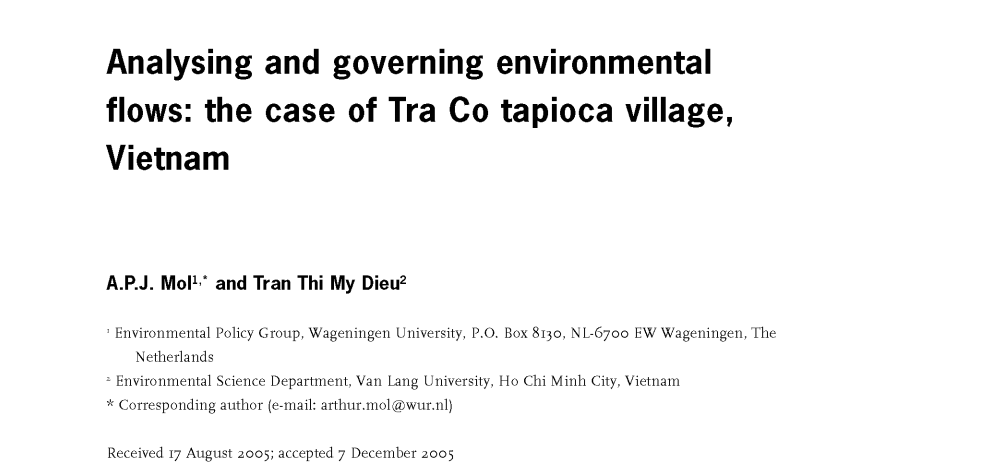REPORTS & PUBLICATION
REPORTS
GHG emissions from waste sector of INC of Myanmar
2010 | NIES
This comprehensive power point presentation provides substantial useful data on different parameters in waste management. It also highlights different methods currently used for collection and treatment of waste in the country.
Carbon emissions reduction strategies in Africa from improved waste management: A Review
2010 | Elsevier
The paper summarises a literature review into waste management practices across Africa as part of a study to assess methods to reduce carbon emissions. Research shows that the average organic content for urban Municipal Solid Waste in Africa is around 56\% and its degradation is a major contributor to greenhouse gas emissions. The paper concludes that the most practical and economic way to manage waste in the majority of urban communities in Africa and therefore reduce carbon emissions is to separate waste at collection points to remove dry recyclables by door to door collection, compost the remaining biogenic carbon waste in windrows, using the maturated compost as a substitute fertilizer and dispose the remaining fossil carbon waste in controlled landfills.
Carbon-Making the right choice for waste management in developing countries
2007 | Elsevier
Due to initiatives such as the clean development mechanism (CDM), reducing greenhouse gas emissions for a developing country can offer an important route to attracting investment in a variety of qualifying project areas, including waste management. To date CDM projects have been largely confined to schemes that control emission from landfill, but projects that avoid landfilling are beginning to be submitted. In considering the waste options which might be suitable for developing countries certain ones, such as energy from waste, have been discounted for a range of reasons related primarily to the lack of technical and other support services required for these more sophisticated process trains. The paper focuses on six options: the base case of open dumping; three options for landfill (passive venting, gas capture with flaring, and gas capture with energy production), composting and anaerobic digestion with electricity production and composting of the digestate. A range of assumptions were necessary for making the comparisons based on the effective carbon emissions, and these assumptions will change from project to project.

Analysing and governing environmental flows: the case of Tra Co tapioca village, Vietnam
2006 | Elsevier
Environmental flows are of crucial importance for questions of sustainability. But analysing only the material side of environmental flows brings us half way understanding questions of sustainability. This article reports on the development of a more integrative approach in studying environmental impacts of agro-industrial systems in Asia, taking tapioca (cassava starch) processing in Vietnam as an example. The analysis of material flows and technological options to close material cycles is combined with an actor-network analysis from three angles: a policy, an economic and a social perspective, respectively. The paper finally assesses the additional value of the developed methodology and points out ways for further investigation and development of a more integrative approach to industrial transformations.
We are cutting our Carbon
| City of Melbourne
The City of Melbourne is working to reduce greenhouse gas emissions across the municipality to zero by 2020 and is leading the way in ensuring our future sustainability and to avert the consequences of climate change. Our aim is to end Melbourne's contribution to global warming by 2020.

Situation of e-waste management in Cambodia
2012 | Elsevier
Importation of second hand of Electric and Electronic Equipment (EEE) into Kingdom of Cambodia will be generated E-waste because of low quality and short period time for using. E-waste generated and handle practiced by formal and informal sector, which is improper practice on storage, collection, transportation and discarding with municipal waste collect and after that disposed at dumping-site. Ministry of Environment (MoE) in role of responsible the prevention, protection as well as minimizing/reduction all activities that impact to human health and environment from all sources polluted is effort to develop project proposal to conduct research, consultation workshop, training workshop and dissemination to stakeholders related to E-waste generation and its impact to human health and environment.
 The kNOwWaste Knowledge Platform was developed through a Project Cooperation Agreement funding by UNEP on 2016. The platform provides data and information on holistic waste management to stakeholders in Asia and the Pacific region. The platform was developed with the following aims: generate and consolidate data or information on holistic waste management, transform data into easily comprehensible outputs for use by key stakeholders, map out and disseminate information on international waste management projects under the GPWM and UNEP projects as well as other international partners, and provide capacity building support through dissemination of data or information support for relevant stakeholders on holistic waste and waste management system.
The kNOwWaste Knowledge Platform was developed through a Project Cooperation Agreement funding by UNEP on 2016. The platform provides data and information on holistic waste management to stakeholders in Asia and the Pacific region. The platform was developed with the following aims: generate and consolidate data or information on holistic waste management, transform data into easily comprehensible outputs for use by key stakeholders, map out and disseminate information on international waste management projects under the GPWM and UNEP projects as well as other international partners, and provide capacity building support through dissemination of data or information support for relevant stakeholders on holistic waste and waste management system.
 2025 © Regional Resource Center for Asia and the Pacific (RRC.AP). All Rights Reserved.
2025 © Regional Resource Center for Asia and the Pacific (RRC.AP). All Rights Reserved.
